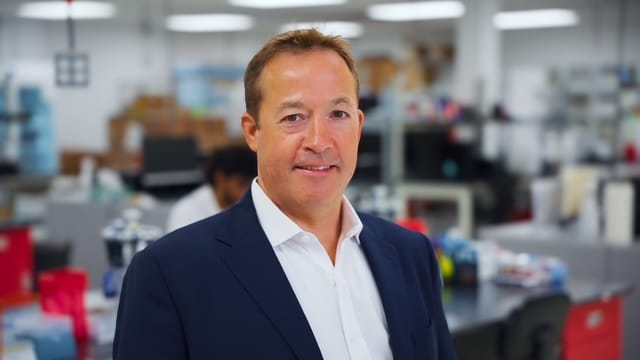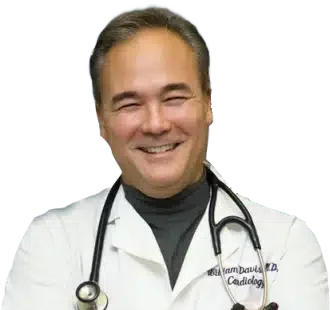Getting healthy can feel overwhelming. Between changing your diet, fitting more exercise into your schedule, and adjusting day-to-day habits to improve your life, it can be hard to figure out what exactly you need to do to and how to get it all done.
This is where Functional Medicine comes in—an important resource for people who are trying to better their health and wellness.

What is Functional Medicine?
Functional Medicine is an approach that focuses on preventing and reversing chronic disease by treating the root causes of illness with diet and lifestyle change.
Functional Medicine is individualized, personalized medicine. We all have unique genetic and environmental variations that set the stage for health or disease. Sleep, nutrition, relationships, stress, and movement all matter because they are modifiable elements of our lifestyle that influence gene expression.
Functional Medicine is a proactive approach to achieve optimal wellness and prevent future diseases. The emphasis is on homeostasis and health – rather than disease and diagnosis.
Functional Medicine addresses why. Why do people get a disease? Why are some people more susceptible than others? We attempt to understand what symptoms mean, rather than cover them up with medications.
What you might not know about Functional Medicine?
1.) It’s science-based.
Functional Medicine practitioners use solid scientific foundations to translate breakthroughs in scientific understanding into clinical practice in real-time. As a result, Functional Medicine practitioners are early adopters of innovative knowledge and practices.
2.) Health is more than just the absence of disease
When you ask “what is Functional Medicine?” this idea is most likely to depict exactly what this approach is all about. Functional Medicine believes that health is not just the absence of disease, but a state of overall wellness.
3.) Functional Medicine views everyone as being genetically and biochemically unique
Since Functional Medicine views us all as different, both genetically and biochemically. It gives way to a more personalized healthcare approach. This approach focuses on treating the individual, not the disease.
In short, Functional Medicine helps give the body what it needs to function at its highest level. It naturally supports the healing mechanisms that your body already has, rather than just focusing on attacking disease.
4.) Functional Medicine fills in the gaps between what the healthcare industry traditionally provides and what many people need
In the conventional healthcare system, we’re all used to physicians who often have to limit the length of appointments, which means spending less time with their patients. While a very strong connection exists between diet and health, many medical professionals do not have adequate education in nutrition (specifically whole foods nutrition) to provide the kind of guidance and support that patients need. Functional Medicine practitioners can spend more time with patients AND help them make the connection between what they eat and how it affects their health.
5.) You can save on medical costs
A healthier lifestyle means fewer visits to the doctor. If you are overweight or obese, you are subject to other diseases that can increase your medical expenses rather quickly. In contrast, if you engage in a healthy lifestyle, you’ll have a better chance of warding off harmful diseases.
6.) Functional Medicine patients are in control of their health
Functional Medicine patients are co-creators of health along with their clinicians. This is a mutually empowering relationship between patient and provider where both share responsibility for creating and implementing the healthcare plan to achieve desired well-being. A greater level of engagement can lead to more years of health, not just more years of life.
7.) Your body can heal itself
According to Dr. Mark Hyman, your body can heal itself and prevent nearly all of the diseases that supposedly ‘come with aging.’ It can do this if it has the nutrients it needs to function at its highest capacity. It is about giving your body what it needs to heal itself.
When you work with a Functional Medicine doctor, they encourage patients to look at the big picture and to not let the presence of disease get in the way of their health or their ability to focus on their bodies.
Final thoughts
As medical doctors and traditional healthcare increasingly embrace the field of Functional Medicine, it’s becoming more likely that we’ll begin to reverse the statistics on preventable and lifestyle-related chronic diseases. The Functional Medicine approach encourages communication and attainable goals to improve health.
If we can partner the Functional Medicine methodology with advancements in medicine, we might be able to reverse the trend of ever-increasing diabetes, heart disease, autoimmune diseases, cancers, and more.
That is a healthcare future to look forward to.
Our Latest Blogs
-

Food Sensitivity Testing 101: Supporting Clients with Inflammation and Gut Issues
Read Full Article: Food Sensitivity Testing 101: Supporting Clients with Inflammation and Gut Issues -

Protein 101: The Health Coach’s Guide
Read Full Article: Protein 101: The Health Coach’s Guide -

Women’s Health and the Vaginal Microbiome: A Probiotic Breakthrough
Read Full Article: Women’s Health and the Vaginal Microbiome: A Probiotic Breakthrough
